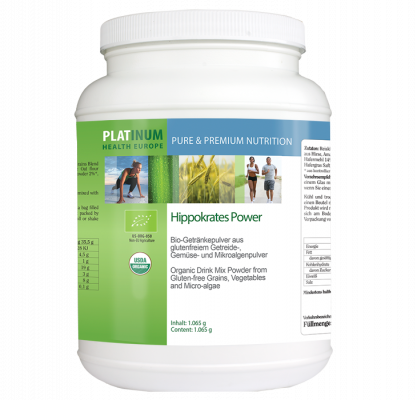A therapeutic diet is a meal plan that is specially formulated to help manage a specific health condition or medical issue. These diets are designed to provide the necessary nutrients while also controlling certain aspects of the individual’s diet to improve their health. Therapeutic diets can be used to manage conditions such as diabetes, high blood pressure, heart disease, kidney disease, gastrointestinal disorders, and more. They are typically prescribed by healthcare professionals such as doctors or dietitians to help individuals improve their overall health and well-being.
Some examples of therapeutic diets include:
- Diabetic diet: A diet that focuses on controlling blood sugar levels by monitoring carbohydrate intake and promoting a balanced diet rich in whole grains, lean proteins, fruits, and vegetables.
- Cardiac diet: A diet that aims to reduce the risk of heart disease by limiting saturated fats, trans fats, cholesterol, and sodium while emphasizing fruits, vegetables, whole grains, and lean proteins.
- Renal diet: A diet designed for individuals with kidney disease that restricts certain nutrients like sodium, potassium, and phosphorus to help reduce strain on the kidneys.
- Gluten-free diet: A diet that eliminates gluten-containing foods for individuals with celiac disease or gluten sensitivity to prevent digestive issues and nutrient deficiencies.
- Low-FODMAP diet: A diet that restricts certain types of carbohydrates (FODMAPs) to manage symptoms of irritable bowel syndrome (IBS) and other gastrointestinal disorders.
- Low-sodium diet: A diet that limits salt intake to help manage conditions like high blood pressure, heart failure, and kidney disease.
These are just a few examples of therapeutic diets that are tailored to specific health conditions to help individuals manage their symptoms and improve their overall health.
Diet & Health Conditions
Certain diseases and health conditions can benefit from specific diets that help manage symptoms and improve overall health outcomes. Some examples include:
- Diabetes: A diabetic diet that focuses on controlling blood sugar levels through monitoring carbohydrate intake and choosing healthy, nutrient-dense foods can help individuals with diabetes manage their condition effectively.
- Heart disease: A cardiac diet that limits saturated fats, trans fats, cholesterol, and sodium while emphasizing fruits, vegetables, whole grains, and lean proteins can help reduce the risk of heart disease and improve heart health.
- Kidney disease: A renal diet that restricts sodium, potassium, and phosphorus intake can help individuals with kidney disease manage their condition and slow down the progression of kidney damage.
- Celiac disease: A gluten-free diet that eliminates gluten-containing foods can help individuals with celiac disease manage symptoms, prevent damage to the intestines, and improve nutrient absorption.
- Irritable bowel syndrome (IBS): A low-FODMAP diet that restricts certain types of carbohydrates can help manage symptoms of IBS such as bloating, gas, and abdominal pain.
- High blood pressure: A low-sodium diet that limits salt intake can help lower blood pressure and reduce the risk of complications associated with hypertension.
These are just a few examples of diseases and health conditions that can see positive health results with specific diets tailored to their needs. It’s important for individuals to work with healthcare professionals such as doctors or dietitians to develop a personalized therapeutic diet plan that suits their specific health goals and needs.
Diet & Autism
There is ongoing research exploring the potential benefits of certain diets for individuals with autism spectrum disorder (ASD). Some diets that have shown promise in helping manage symptoms associated with autism include:
- Gluten-free diet: Some individuals with ASD may benefit from a gluten-free diet, as gluten sensitivity or celiac disease can sometimes co-occur with autism and may contribute to gastrointestinal issues and behavioral symptoms.
- Casein-free diet: Eliminating casein, a protein found in dairy products, from the diet has been suggested as a potential intervention for some individuals with ASD, as dairy sensitivity may exacerbate symptoms in some cases.
- Ketogenic diet: The ketogenic diet, which is high in fats and low in carbohydrates, has shown some positive effects in reducing seizures in individuals with epilepsy, which can sometimes be co-occurring in individuals with ASD.
- Balanced, nutrient-dense diet: Ensuring individuals with ASD have a well-balanced, nutrient-dense diet rich in fruits, vegetables, lean proteins, and whole grains can support overall health and well-being, potentially improving symptoms and behaviors.
It’s essential for individuals considering implementing a specialized diet for autism to consult with healthcare professionals, such as doctors or registered dietitians, to ensure that the diet is nutritionally balanced and safe for the individual’s specific needs. Additionally, individual responses to dietary interventions can vary, so it’s important to monitor progress and make adjustments as needed.
Diet & ADHD
There is ongoing research exploring the potential impact of diet on individuals with attention deficit hyperactivity disorder (ADHD). While there is no one-size-fits-all diet for managing ADHD, some dietary strategies that may be beneficial include:
- Balanced diet: Ensuring individuals with ADHD have a well-balanced diet rich in fruits, vegetables, whole grains, lean proteins, and healthy fats can support overall brain health and function.
- Omega-3 fatty acids: Foods rich in omega-3 fatty acids, such as fatty fish, flaxseeds, and walnuts, may help support brain health and cognitive function, potentially benefiting individuals with ADHD.
- Protein-rich foods: Including protein-rich foods in meals and snacks can help stabilize blood sugar levels and improve focus and attention in individuals with ADHD.
- Limiting processed foods and artificial additives: Some individuals with ADHD may be sensitive to artificial colors, flavors, and preservatives found in processed foods, so reducing their intake may help manage symptoms.
- Individualized approach: It’s important for individuals with ADHD to work with healthcare professionals, such as doctors and dietitians, to develop a personalized diet plan that suits their specific needs and goals.
While diet alone may not be a sole treatment for ADHD, incorporating healthy eating habits and nutrient-dense foods can complement other interventions, such as medication and behavioral therapy, in managing symptoms and improving overall well-being for individuals with ADHD.
In conclusion, therapeutic diets play a crucial role in managing various health conditions and improving overall well-being. Tailored to specific needs and health goals, these specialized meal plans can help individuals effectively manage diseases such as diabetes, heart disease, kidney disease, and gastrointestinal disorders. By emphasizing nutrient-dense foods, limiting certain nutrients, and promoting healthy eating habits, therapeutic diets offer a proactive approach to health management. Working closely with healthcare professionals to develop and implement a personalized diet plan can lead to positive outcomes and better quality of life for individuals seeking to optimize their health through nutrition.
Therapeutic diets play a crucial role in managing various health conditions and improving overall well-being! #HealthSurgeon
Sources:
https://www.cdss.ca.gov/agedblinddisabled/res/VPTC2/9%20Food%20Nutrition%20and%20Preparation/Types_of_Therapeutic_Diets.pdf
https://www.sciencedirect.com/science/article/pii/S1750946724000278#:~:text=The%20review%20assesses%20impact%20of,Folate%20linked%20to%20ASD%20management.
https://www.ncbi.nlm.nih.gov/pmc/articles/PMC9322602/









